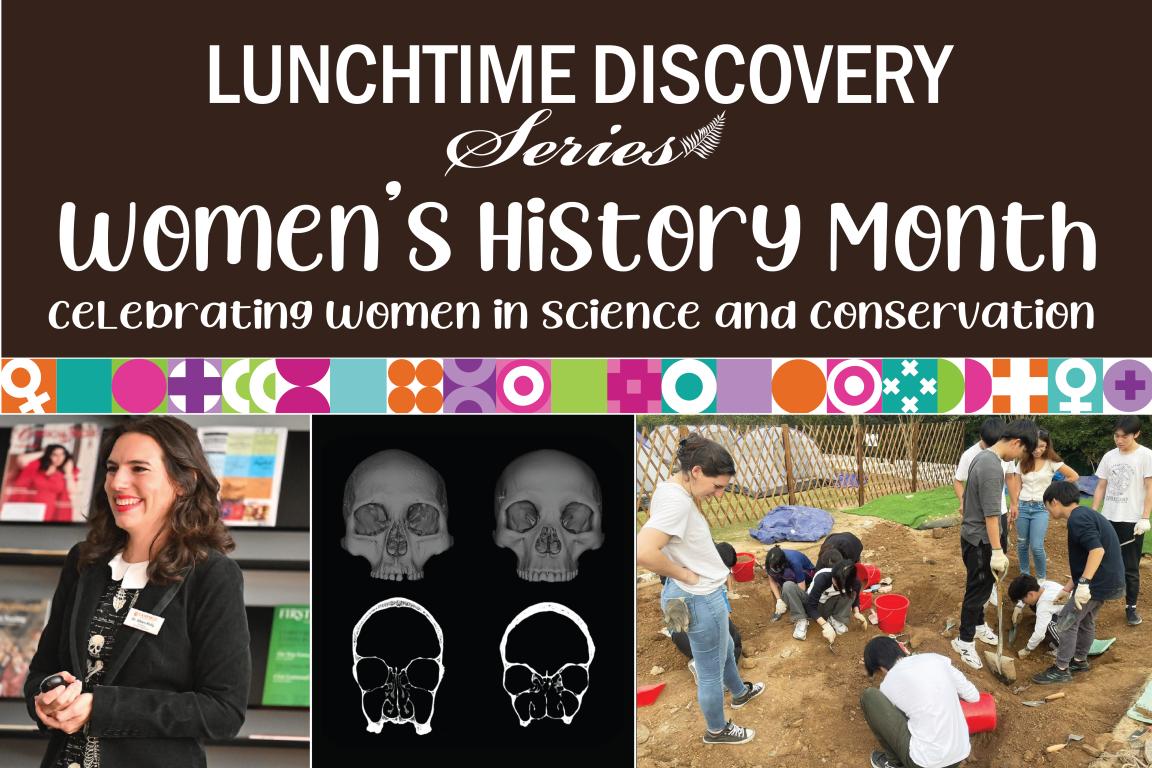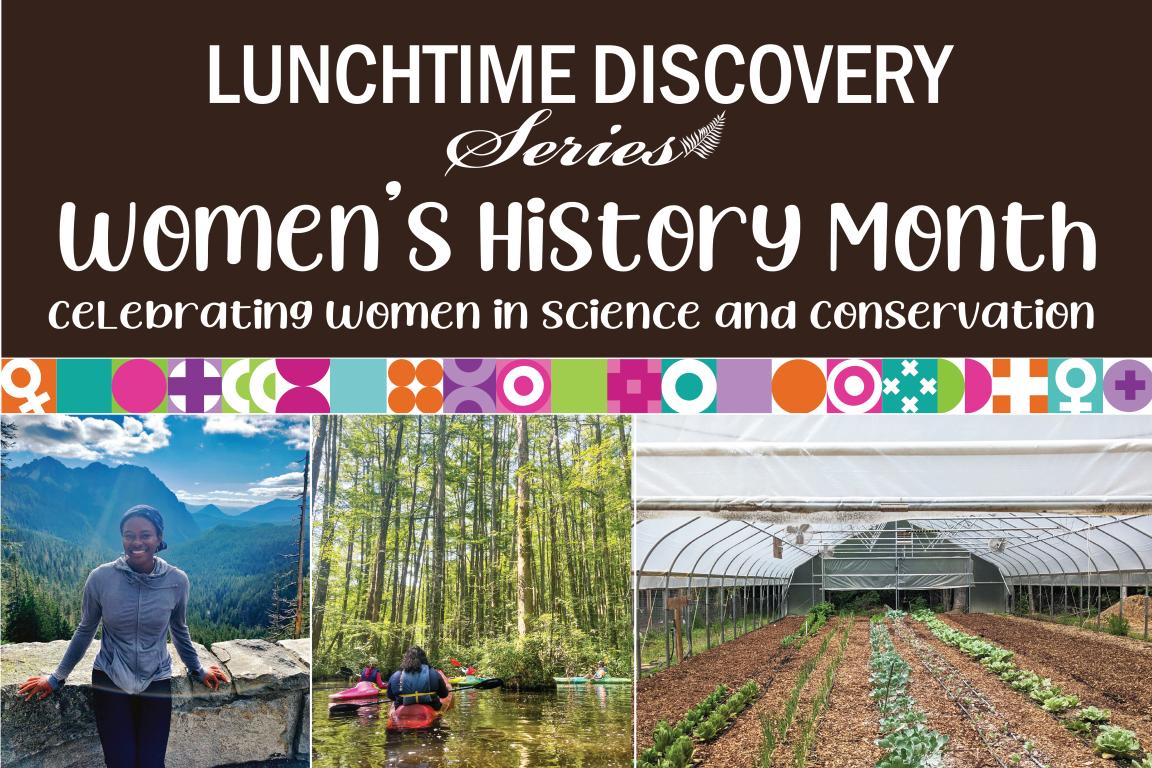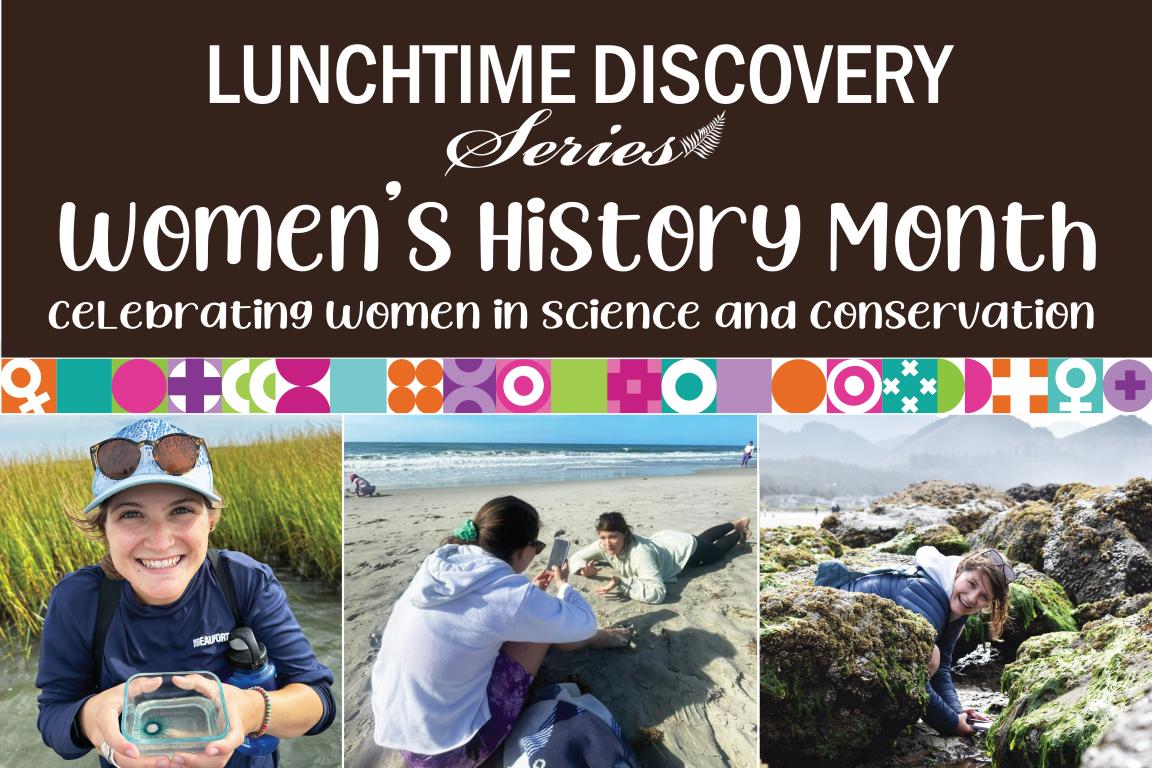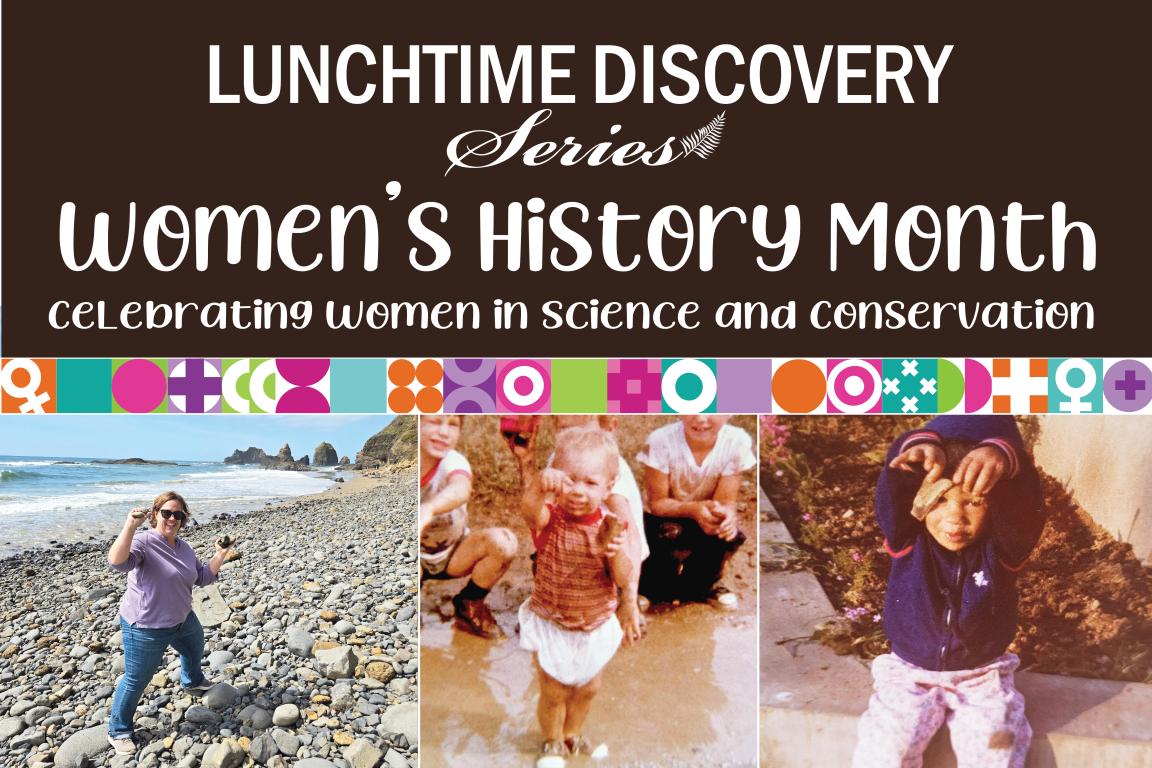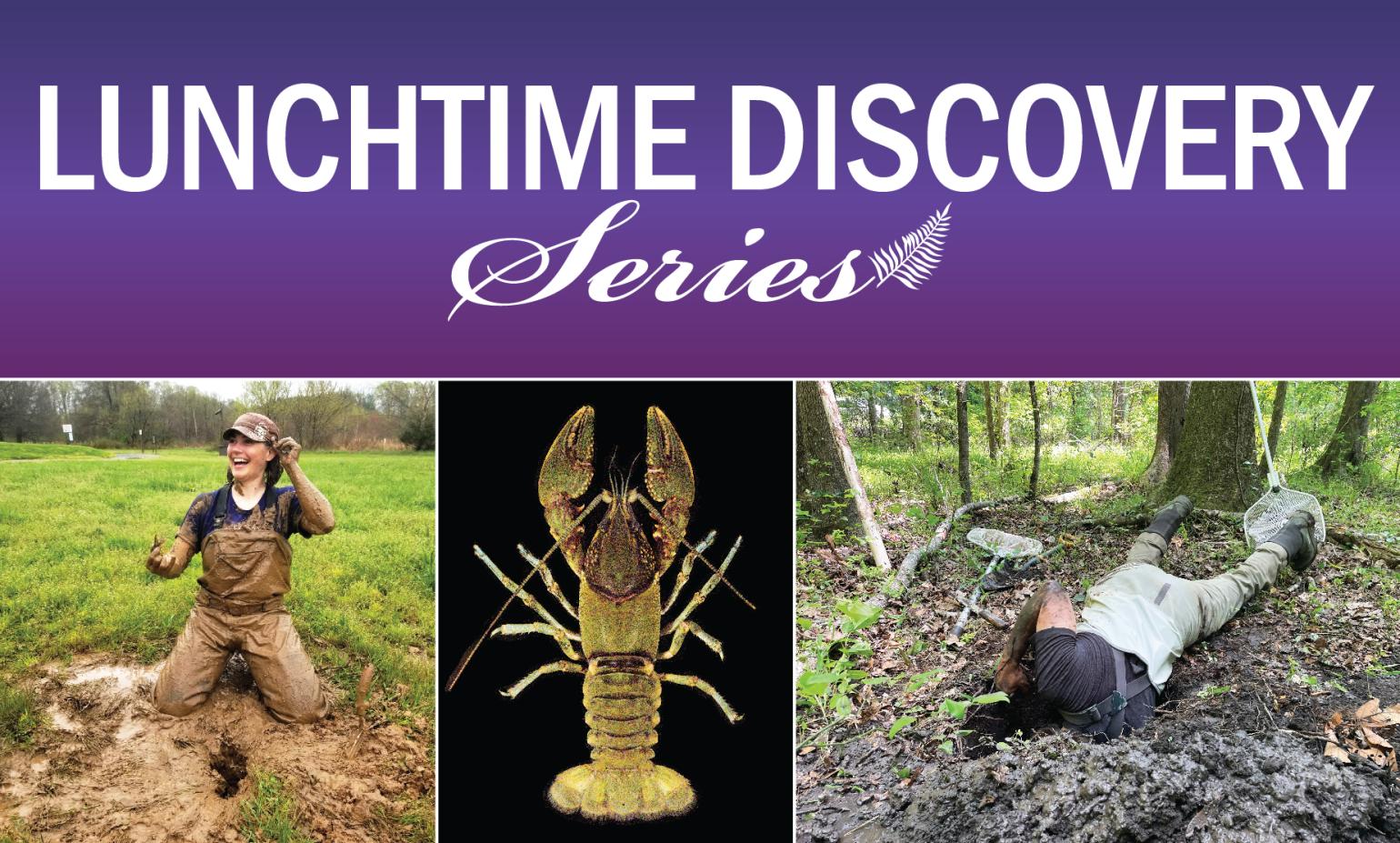Lunchtime Discovery Series
The NCDEQ Office of Environmental Education and Public Affairs hosts a guest lecture series called the "Lunchtime Discovery," hosted and streamed with our partners at the NC Museum of Natural Sciences. Professionals from a wide range of environmental fields give presentations about their work and participate in a live moderated question and answer chat with viewers. Topics range from spider diversity in North Carolina to Geographic Information Systems (GIS), to how to incorporate music in environmental education programming.
The are several recorded presentations on a wide variety of environmental topics that can be used in the classroom to supplement existing lessons on ecosystems, natural resources, and North Carolina history. See archived talks from 2017 to 2024 on the menu to the right.
Subscribe to weekly email notifications about upcoming lectures!
Stephen Farrell, Curator of Special Collections, George H. & Laura E. Brown Library
Ray Midgett, Vice President, Historic Port of Washington Project
In 1923, four boys from Washington, North Carolina, created a small museum. Beginning in a tent, their “Bug House Laboratory” eventually moved into its own building and became the Washington Field Museum, at one time the largest amateur museum in the United States. Its collection attracted the attention of H.H. Brimley, the director of the Museum of Natural Sciences, and its taxidermist/forensic ornithologist Roxie Simpson (Laybourne). Many other distinguished scientists and curators took note of their work, including the National Museum of Natural History and the American Museum of Natural History. Join us to learn more about the laboratory’s history and how the City of Washington and local organizations work to keep the memory of the “Bug House” alive.
Today @ Noon – 1:00 p.m. Eastern
WATCH THIS TALK
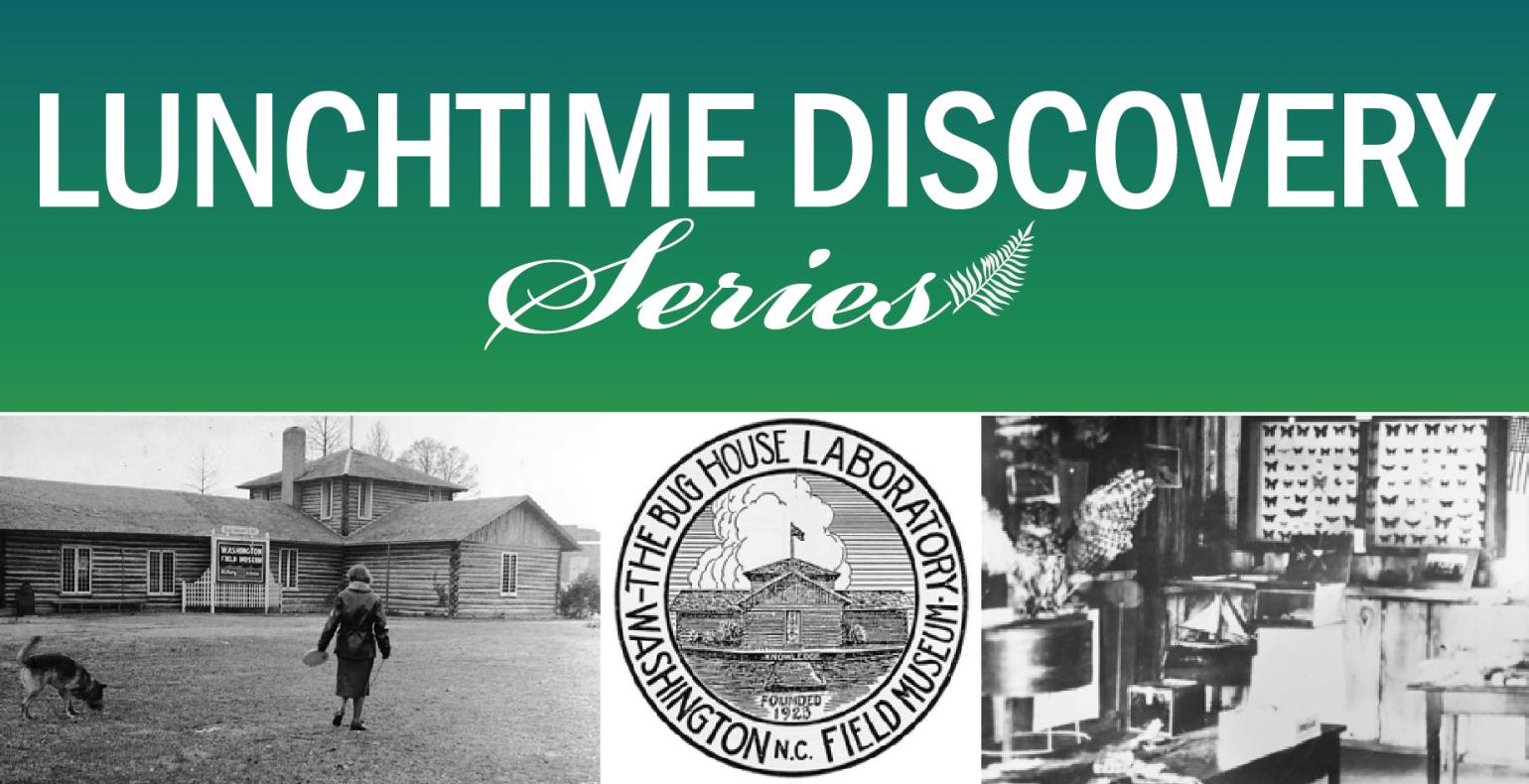
Alicia Wassmer, Alligator Biologist, North Carolina Wildlife Resources Commission
Alligators are often thought of as creatures of the deep South, but North Carolina was home to these remarkable reptiles long before the earliest accounts by colonial-era naturalists. Find out what makes the only Carolina crocodilian unique – we’ll explore recent research and ongoing monitoring projects that are helping biologists learn more about alligator populations at the northern edge of their range – and what everyone can do to help keep alligators and people safe. You’ll leave knowing how to be GatorWise in the places where people and alligators share the landscape.
December 10, 2025 @ Noon – 1:00 p.m. Eastern
WATCH THIS TALK
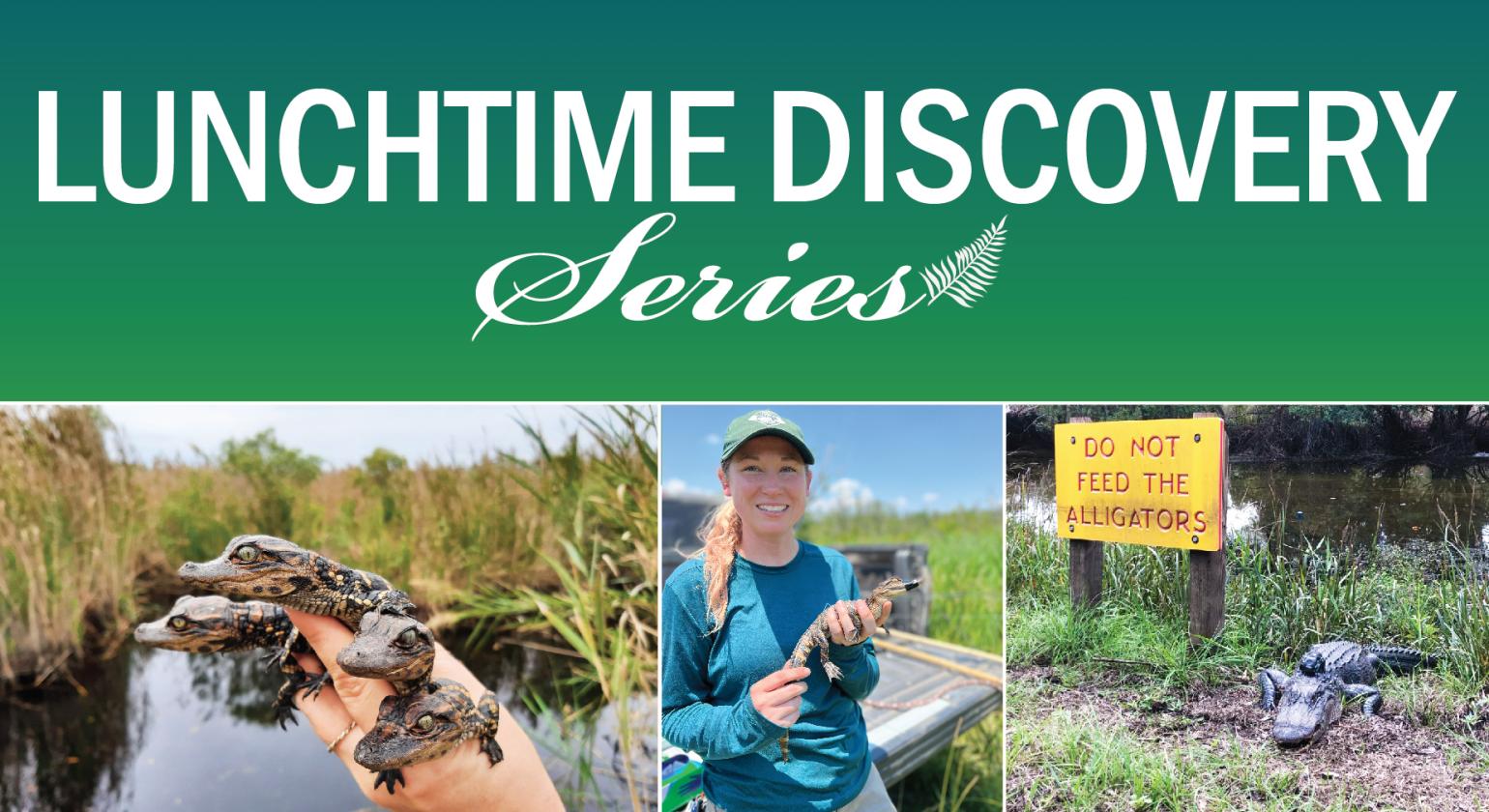
Karen G. Lloyd, Wrigley Professor of Earth Sciences, and Marine and Environmental Biology, University of Southern California
Life thrives in the deepest, darkest recesses of Earth’s crust - from methane seeps in the ocean floor to the highest reaches of Arctic permafrost - and it is unlike anything seen on the surface. Karen Lloyd shares what scientists are learning about these strange types of microbial life - and how research expeditions to some of the most extreme locales on the planet can tell us about the prospects for finding life on other planets - and the future of life on our own.
December 3, 2025 @ Noon – 1:00 p.m. Eastern
WATCH THIS TALK
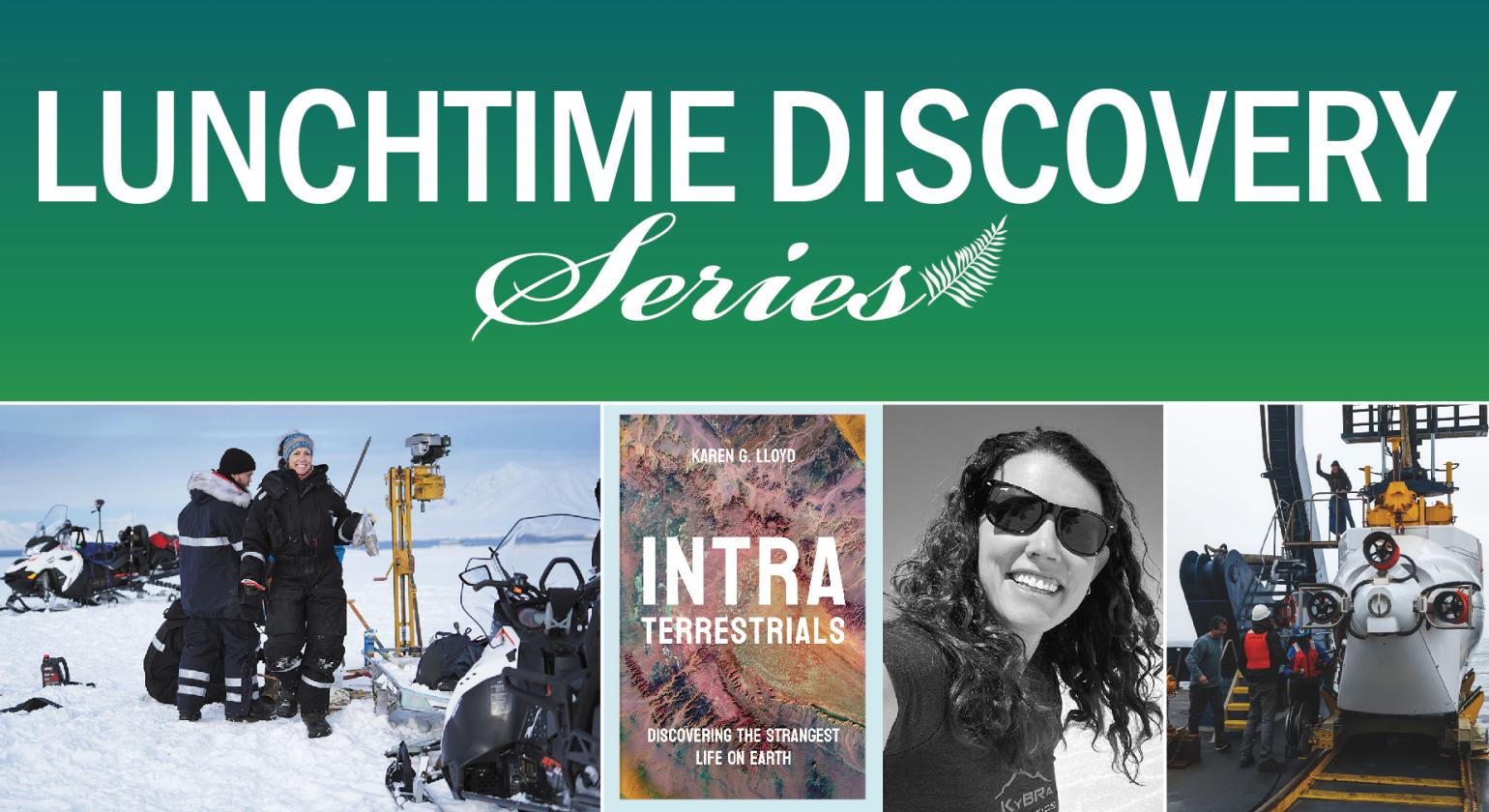
Scott Fister, Sustainability Professional
What is biomimicry? Bring your sense of natural wonder for an introduction to the potential opportunities of using nature’s genius as a guide to solving human problems. Discover how this interdisciplinary methodology could be applied to your profession or community to help grow a more regenerative future.
November 19, 2025 @ Noon – 1:00 p.m. Eastern
WATCH THIS TALK
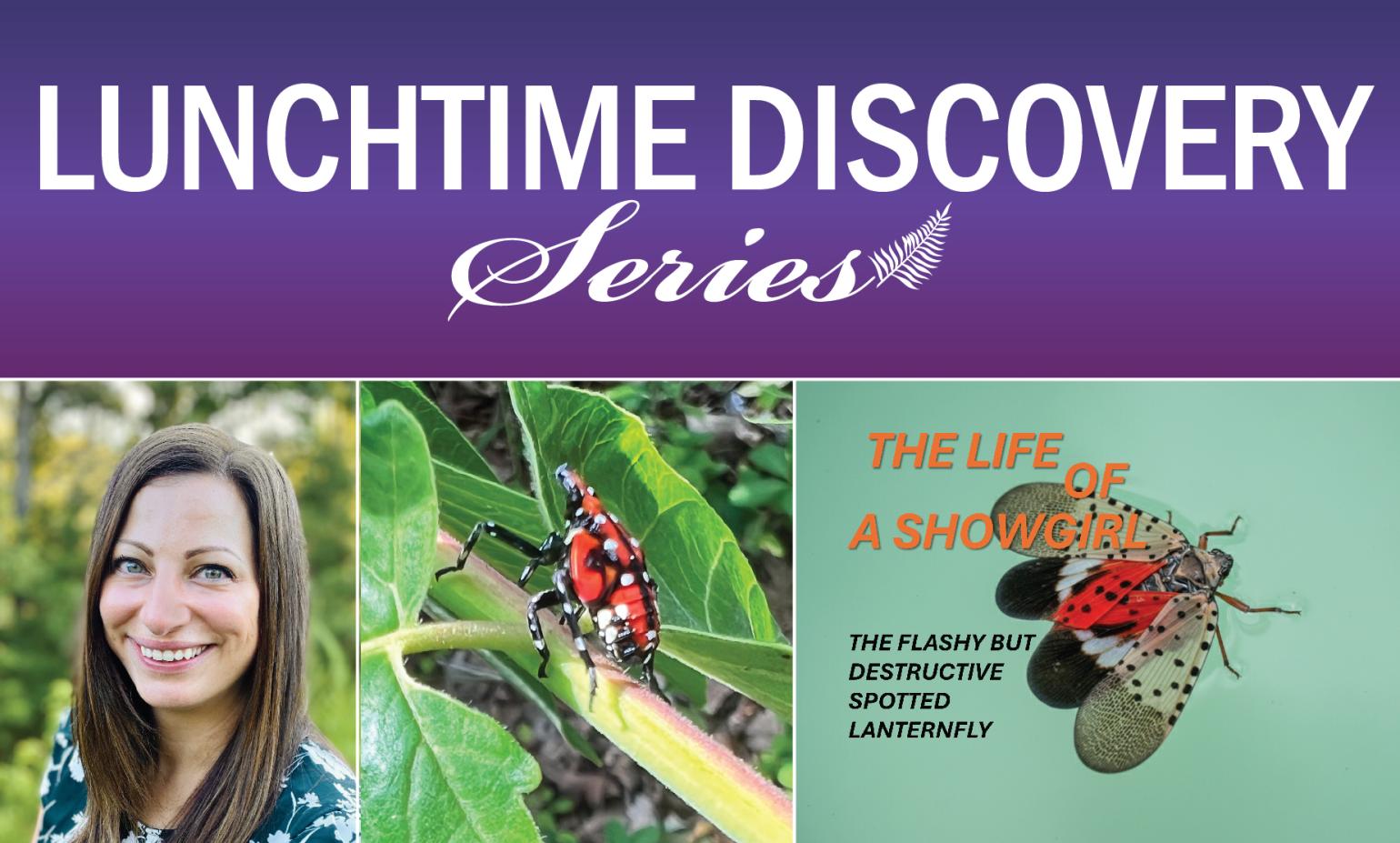
The Life of a Showgirl: The Flashy but Destructive Spotted Lanternfly
Dr. Kelly Oten, Assistant Professor and Extension Specialist, Department of Forestry and Environmental Resources, NC State University
It’s beautiful, it’s bold and it’s bad news for North Carolina. The spotted lanternfly, first detected in our state in 2022, may look flashy with its bright wings, but behind the showgirl exterior lies a destructive pest that threatens vineyards, orchards, landscape plants, and forests. It is spreading quickly, leaving behind plant damage, sticky messes, and big headaches for landowners. Join us to learn the full story of the spotted lanternfly – its life cycle, the damage it causes, and, most importantly, what YOU can do about it.
November 12, 2025 @ Noon – 1:00 p.m. Eastern
WATCH THIS TALK
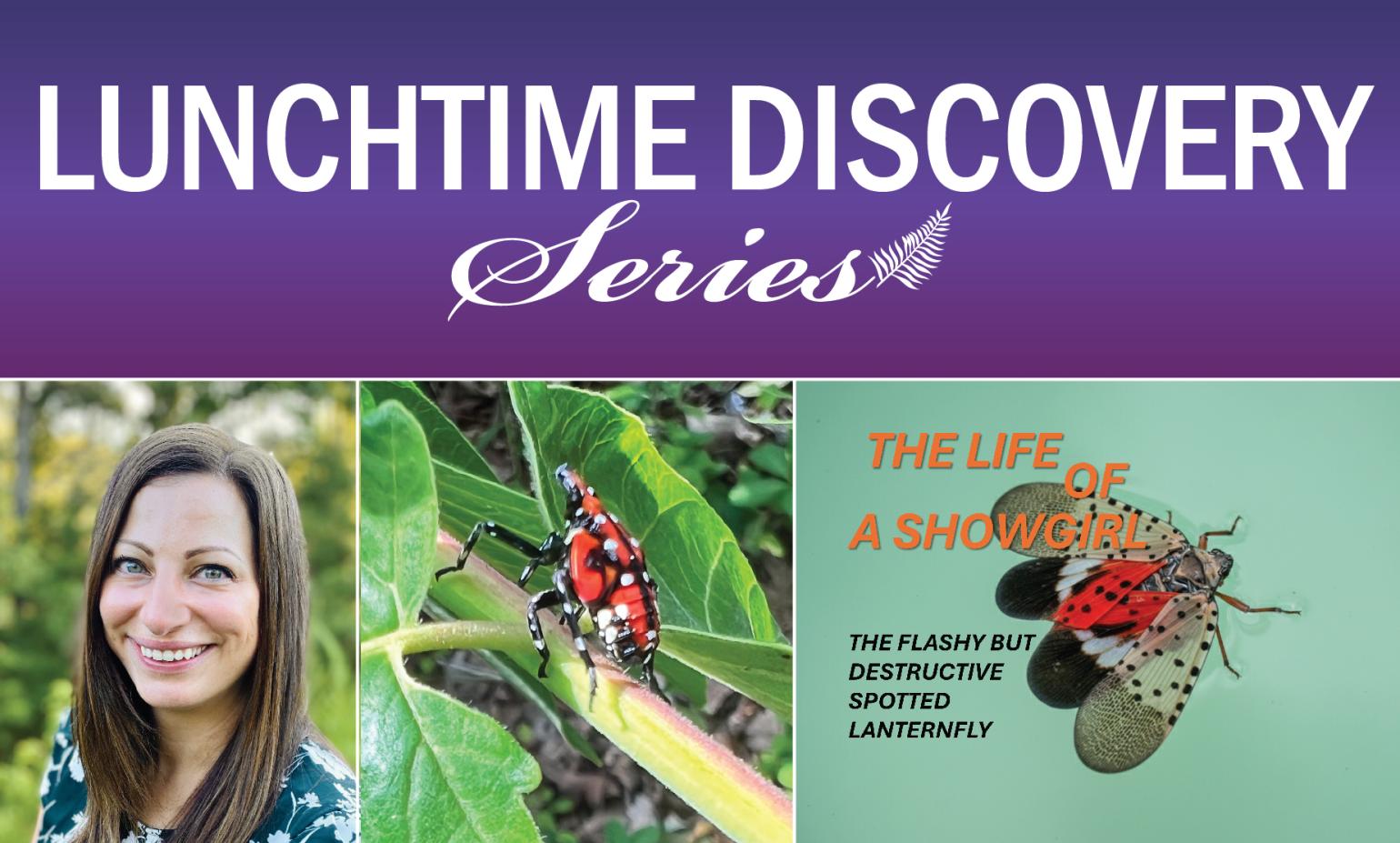
Chris Sweeney, Author and Award-Winning Journalist
Feathers turn up in the most unusual places: The nostrils of a murder victim smothered with a pillow. The cockpit of a jet that hit a flock of geese and crashed. Even the dryer lint trap of a white supremacist who tarred and feathered a Civil Rights activist. In this talk, Chris Sweeney, author of The Feather Detective: Murder, Mayhem, and the Magnificent Life of Roxie Laybourne, will explore the remarkable world of forensic ornithology and the singular woman who pioneered it.
WATCH THIS TALK
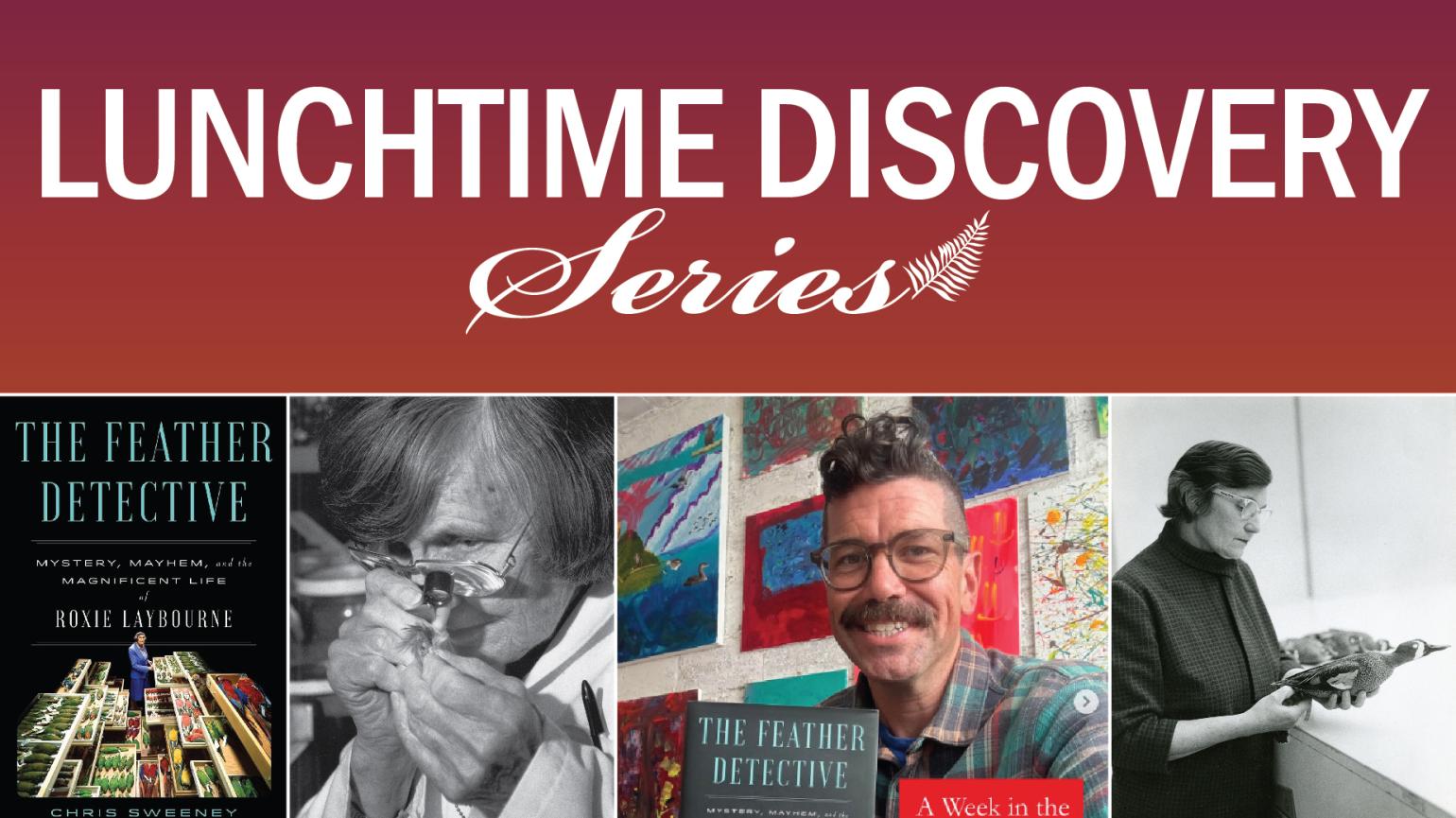
Dr. Luke Etchison, Aquatic Conservation Biologist, NC Wildlife Resources Commission
Join biologist Dr. Luke Etchison to hear about how our fishes, mussels, and crayfish are doing in WNC following Hurricane Helene. He will discuss the challenges our river critters are up against and how we can recover them. Luke’s experience navigating the choppy waters of hurricane recovery for people and species led to many lessons learned that will help us protect our species from the next natural disaster.
October 15, 2025 @ Noon – 1:00 p.m. Eastern
WATCH THIS TALK
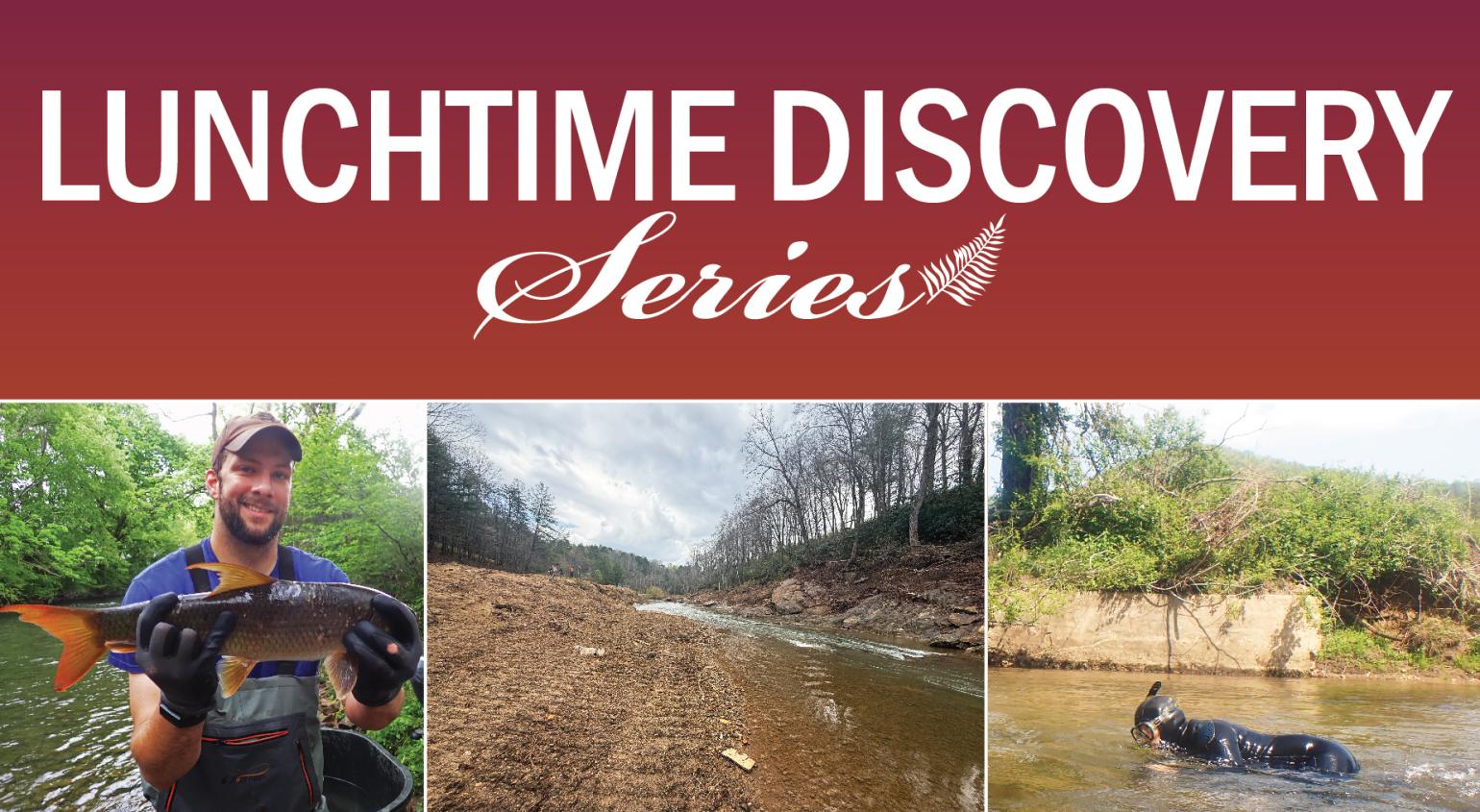
Chris Goforth, Head of Collaborative Science, NC Museum of Natural Sciences
In some cases, scientific research isn’t possible without the help of many citizen scientists! Learn how Chris Goforth, Head of Collaborative Science at the NC Museum of Natural Sciences, has explored dragonfly behaviors through citizen science projects.
October 8, 2025 @ Noon – 1:00 p.m. Eastern
WATCH THIS TALK
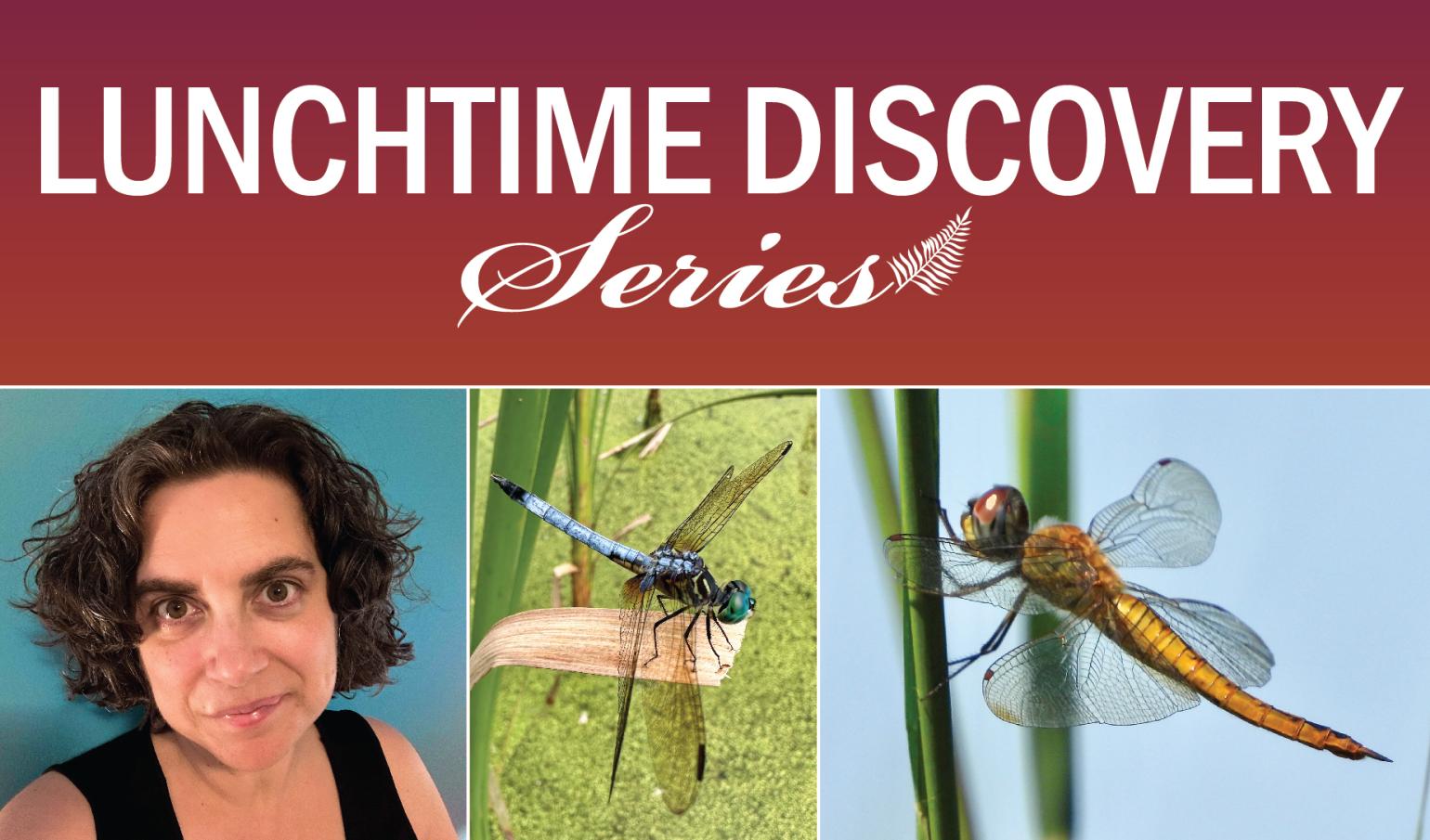
Dr. Liz DeMattia, Research Scientist and Director of the Community Science Initiative, Duke University Marine Lab
Dr. Kathryn Stevenson, Associate Professor and Director of the Environmental Education Lab, NC State University
Have you ever wondered why live oaks are shaped just so? This question kicks off the fable, “The Live Oak in the Wind,” which teachers use to help students understand how nature can adapt to disturbances, and they can, too. Join us to hear about Ready, Set, Resilience, a program designed for middle schoolers that uses stories from nature to learn about resilience. It started on the NC coast, when teachers and researchers came together to support kids after Hurricanes Florence and Dorian. Since then, we have expanded to Durham and were able to bring the program to the mountains to support teachers and kids immediately after Hurricane Helene. Come hear a story, learn about how teachers are using resources across the curriculum, and be inspired by kids sharing what they have learned with their communities.
October 1, 2025 @ Noon – 1:00 p.m. Eastern
WATCH THIS TALK
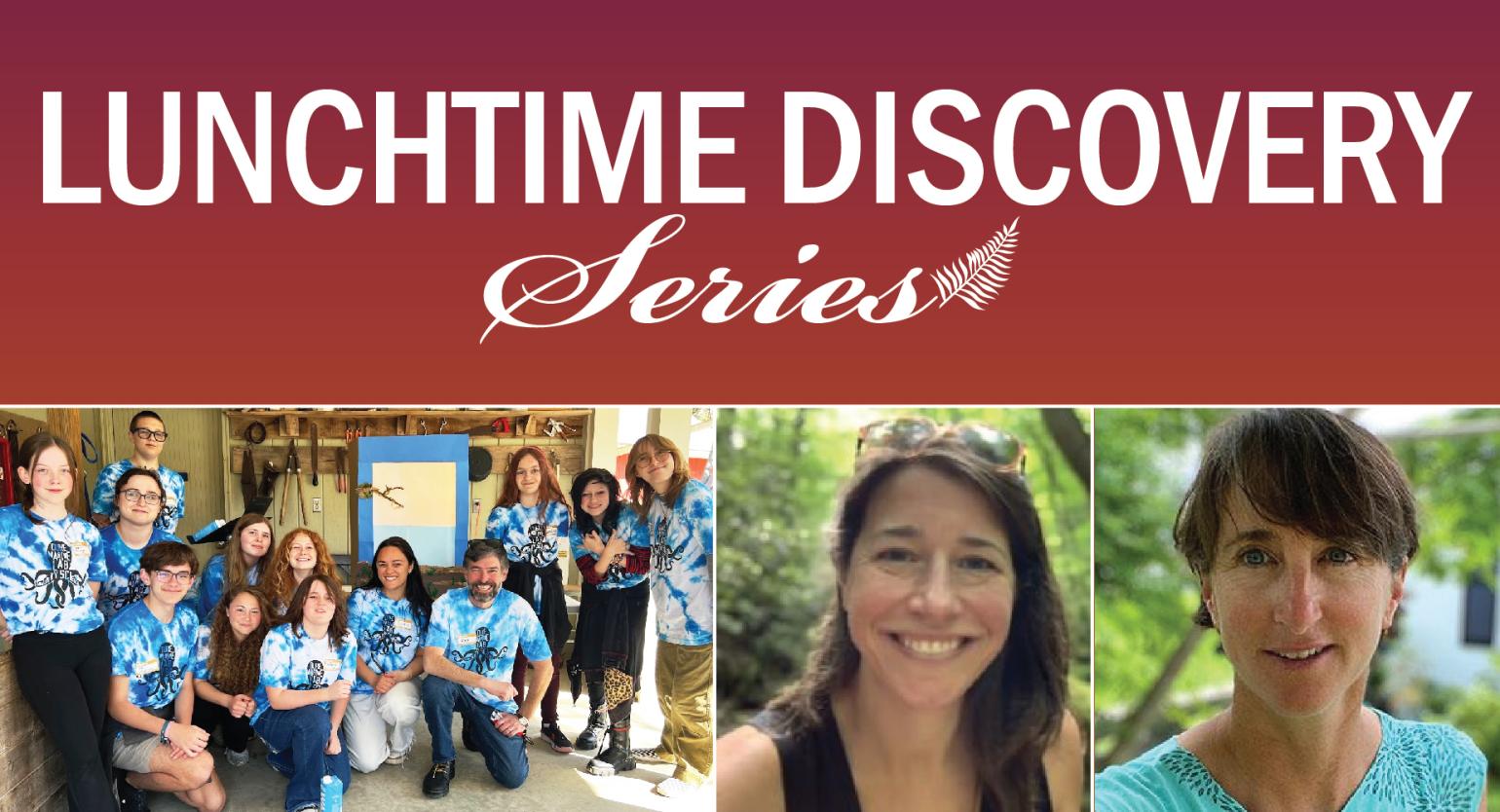
Reid Wilson, Secretary, NC Department of Environmental Quality
Governor Josh Stein appointed Reid Wilson to be Secretary of the Department of Environmental Quality in January 2025. For the previous four years, Wilson was Secretary of the Department of Natural and Cultural Resources under Governor Roy Cooper. Now, as Secretary of the lead stewardship agency for the protection of North Carolina's air, water, and land, he draws on his diverse career experiences in the public and private sectors to create innovative strategies for our state's environmental future. Secretary Wilson will share examples of how the Department of Environmental Quality works with communities across the state to address health threats, enhance quality of life, and strengthen economic growth.
September 17, 2025 @ Noon – 1:00 p.m. Eastern
WATCH THIS TALK
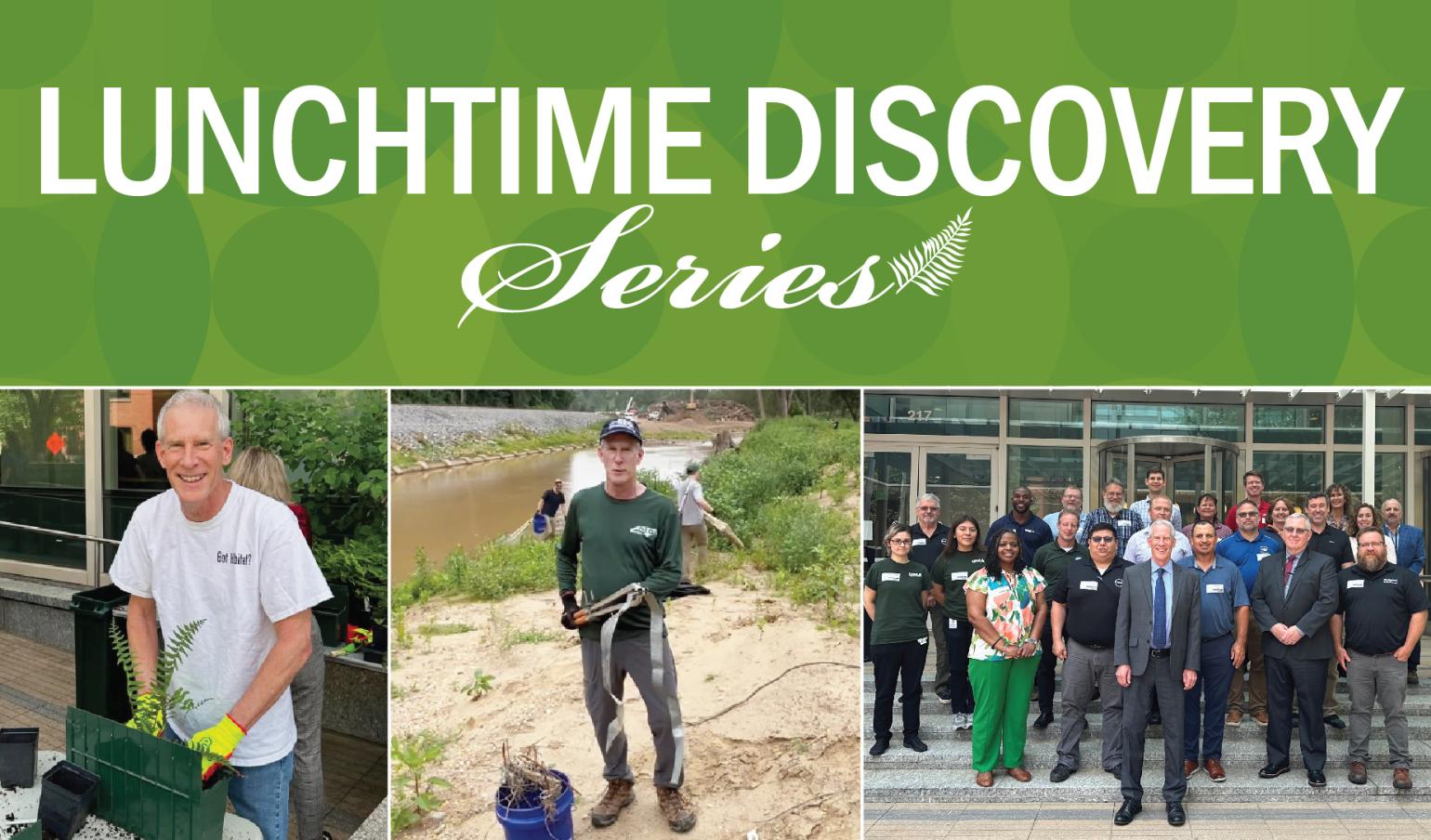
Dr. Carly Anne York, Science Communicator
Join biologist and author Dr. Carly Anne York for an exploration of the wonderfully weird world of scientific discovery. Based on her new book The Salmon Cannon and the Levitating Frog, we’ll dive into real research studies that might sound absurd—elephant urination, worm blobs, glowing jellyfish—but have led to serious breakthroughs in medicine, engineering, and technology. Dr. York will reveal how curiosity-driven science, often dismissed as frivolous, is essential for innovation. From whale-inspired wind turbines to cockroach robots, you’ll leave with a new appreciation for the wonderful and weird twists of scientific progress.
September 17, 2025 @ Noon – 1:00 p.m. Eastern
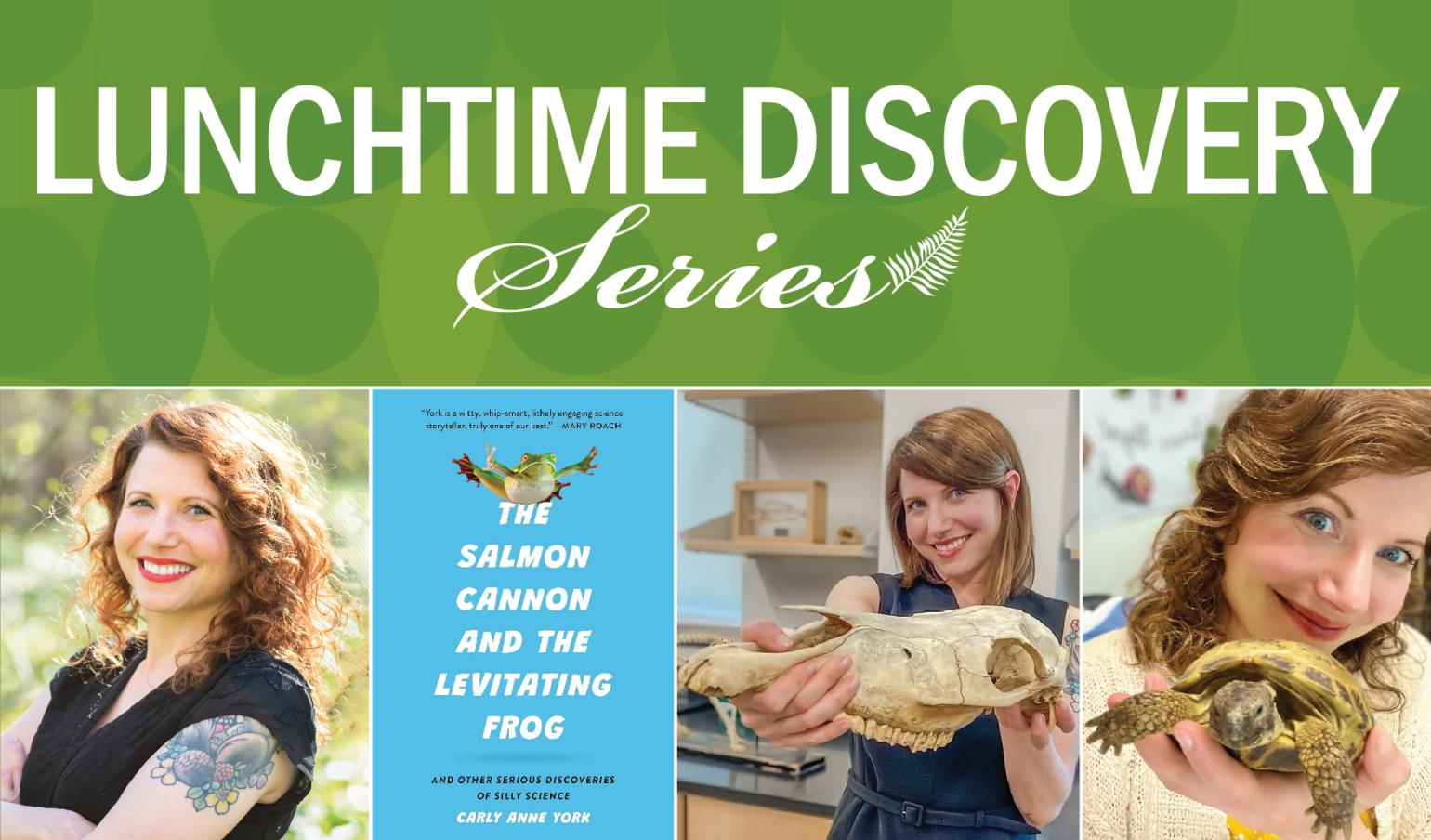
Preston Montague, ASLA, PLA, Landscape Architecture, Fine Arts, Education
Join landscape architect and artist Preston Montague for a look back at the busy first half of 2025 as the inaugural artist-in-residence at Dix Park in Raleigh. The residency focuses on the development of landscape experiences spread across the park, built in the service of memory—centering nostalgia, land loss, and environmental body memory. Developing these land art installations demanded horticultural research and innovation, product design, and developing a network of allies across city and state agencies, as well as green industry professionals. We'll look back together at both the art and the science of constructing grassland ecosystems at Dix Park that are rooted in the ancient and branch into the future.
Preston Montague, ASLA, PLA, is a landscape architect and artist working to strengthen relationships between people and the natural world. His environmental design studio deploys art, horticulture, and landscape architecture in the service of building places that have meaning and ecological depth. When not in studio, Preston enjoys teaching landscape architecture at North Carolina A&T State University and hiking the wilder places.
September 10, 2025 @ Noon – 1:00 p.m. Eastern
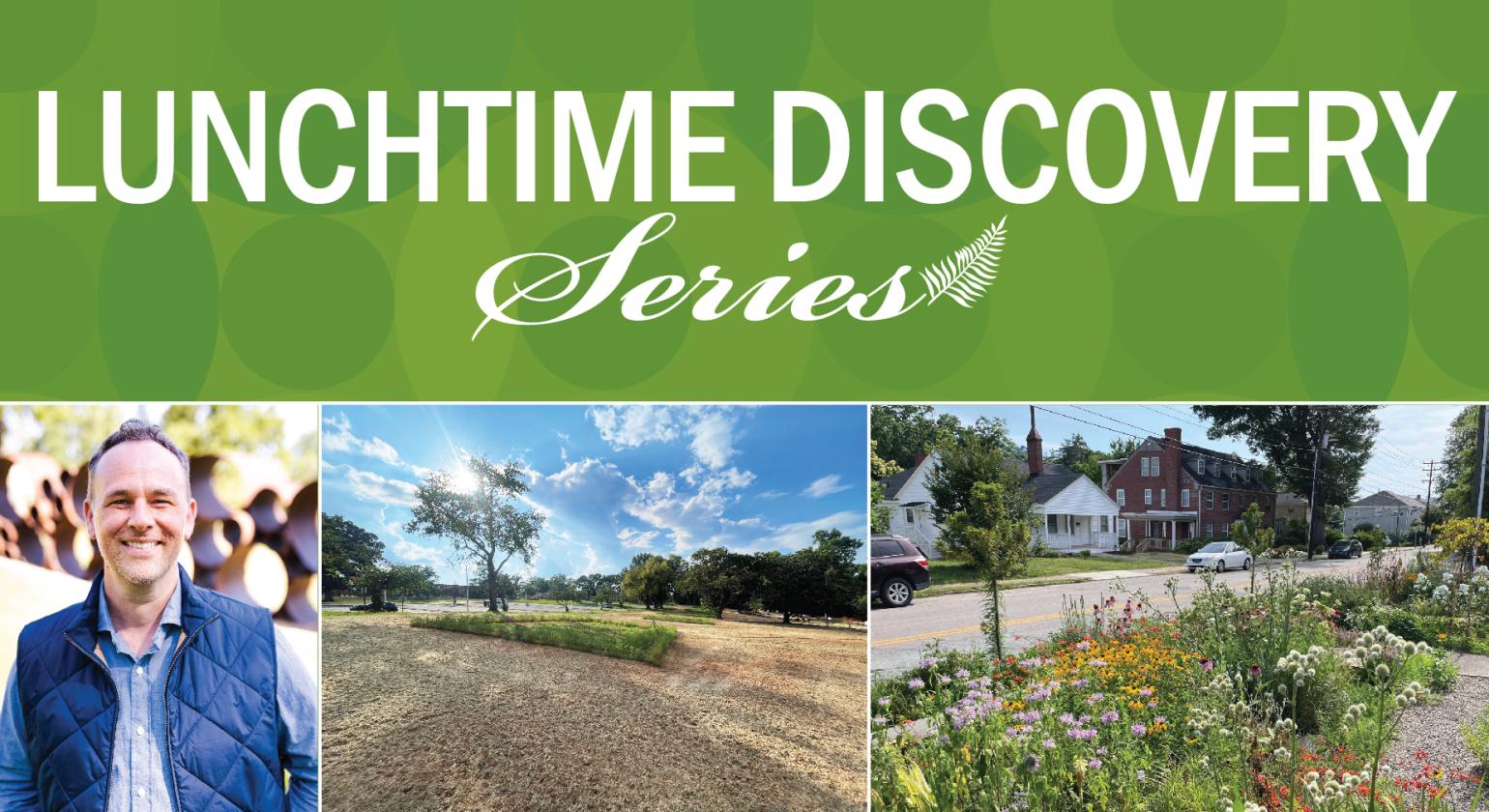
Dr. Michelle Schroeder-Moreno, Director, Center for Environmental Farming Systems (CEFS), North Carolina State University and W.K. Kellogg Endowed Distinguished Chair in Sustainable Community-Based Food Systems
Climate change, food insecurity, and environmental concerns are complex agricultural and food systems challenges impacting farmers and communities globally and here in North Carolina. These sustainability challenges require multidisciplinary and new approaches across our whole food system from the farm gate to plate. Join us to learn about the agroecology and sustainable food and agricultural systems research, education, and extension programs through the Center for Environmental Farming Systems (CEFS), a 30-year partnership with NC State University, NCA&T University and the NC Department of Agriculture and Consumer Services. We will also share opportunities to engage with CEFS, including career path opportunities in agroecology.
Wednesday, May 28, 2025 @ Noon – 1:00 p.m. Eastern
WATCH THIS TALK

Seth C. Hawkins, MD, MA, MPH, Associate Professor, Wake Forest University
Wildland fires are frequently in the news. All of us were raised in an era where “Smokey Bear” is one of the most recognizable figures in our society, as is his message of preventing wildfires. However, we rarely look to the wildland firefighters that help prevent wildfires. This presentation shares original research done at The University of North Carolina at Charlotte on the health parameters of wildland fires and firefighters. The presentation follows that analysis into a deeper exploration of the phenomenon of “cultural burning” and what it means for the health of our wildland firefighters and our society.
Wednesday, May 21, 2025 @ Noon – 1:00 p.m. Eastern
WATCH THIS TALK

Jon Stamper, River Clean-up Coordinator, Mountain True and the WNC Riverkeepers
Join Jon Stamper to find out how Mountain True has cleaned up rivers after the devastation of Hurricane Helene and tackled the immediate needs of community while laying the groundwork for a resilient future in Western North Carolina. Their success has been a collaborative approach using volunteers, their paid workforce, and contractors. Jon will highlight some of the challenges they faced and what lies ahead.
Wednesday, May 14, 2025 @ Noon – 1:00 p.m. Eastern
WATCH THIS TALK

Mackenzie Todd, Coastal Resiliency Coordinator, DEQ Division of Coastal Management, Morehead City
Coastal hazards such as flooding and erosion have had devastating impacts on the economies and livelihoods of communities across eastern North Carolina. Economic and local capacity constraints hinder the actions needed to enhance resilience and reduce vulnerability within coastal communities. The NC Resilient Coastal Communities Program provides financial grants and technical assistance to coastal local governments to support a proactive, equitable, and locally driven approach to coastal resilience planning and project implementation.
Wednesday, May 7, 2025 @ Noon – 1:00 p.m. Eastern
WATCH THIS TALK

Rebecca Composto, Ph.D. Student at the Center for Geospatial Analytics at NC State University
Flooding causes many types of harm from economic losses and damages to disrupting daily life. In the past few decades there has been an increase in the quantity and accessibility of satellite imagery. This imagery, in combination with machine learning can be turned into flood maps that can help decision-makers recover and prepare for future events. We will explore different types of imagery and how they can be leveraged to map flooding.
Wednesday, April 30, 2025 @ Noon – 1:00 p.m. Eastern
WATCH THIS TALK

Dr. Erika Young, Coastal and Marine Education Specialist NC Sea Grant
Adam Smith, Teacher, South Stanly Middle School
Cindy Martin, Montgomery County Early College
Dr. Kim Jones, Dean of Arts & Sciences, Brunswick Community College
Erika Young with NC Sea Grant partnered with Richard Neal, owner of Frying Pan Tower to provide the first immersive scientific research and education experience for five teachers on the famous Frying Pan Tower. Join us to learn how these teachers spent a week living on top of this former US Coast Guard Light Station, located in Frying Pan Shoals, 32 miles out in the ocean south of Bald Head Island.
April 23, 2025 @ Noon – 1:00 p.m. Eastern
WATCH THIS TALK

David Lee, Natural Resources Director, Conserving Carolina
Lia Waldrum, Indigenous Partnership and Restoration Coordinator, Conserving Carolina
Join us to learn about Conserving Carolina’s innovative floodplain restoration projects along North Carolina’s French Broad River, focusing on their role in mitigating flood risks, improving biodiversity and enhancing water quality. Using real-world examples, such as the Pleasant Grove and Kings Bridge restorations, we’ll explore strategies to restore natural functions to floodplains and build resilience against extreme weather events like Tropical Storm Helene.
Wednesday, April 16 @ Noon – 1:00 p.m. Eastern
WATCH THIS TALK

Amanda Bratcher, Horticulture Agent, NC Cooperative Extension- Lee County Center
Let's explore the vital role of citizen scientists in pollinator conservation! Discover how North Carolinians have contributed to the Great Southeast Pollinator Census, gathering crucial data on local insect populations over the past two years. Learn about the diverse pollinators observed and the impact of community involvement. Beyond the census, we'll delve into other accessible citizen science projects, empowering you to actively participate in pollinator research and conservation.
Wednesday, April 2 @ Noon – 1:00 p.m. Eastern
WATCH THIS TALK

Mariah Hughes, Executive Director, Mountain Valleys Resource Conservation and Development
In the face of devastation, we find strength-not just to endure, but to rebuild. Join us for an inside look at one woman’s journey through Hurricane Helene and the recovery efforts of her nonprofit, Mountain Valleys Resource Conservation and Development Council.
Along the way, we’ll meet other inspiring women in Marshall, North Carolina, who are rebuilding their lives and community. Through the lens of the council’s work, we’ll explore the pivotal role of natural resource management in fostering resilience to future disasters. This talk also offers a personal reflection on a career path in conservation.
Wednesday, March 26, 2025 @ Noon – 1:00 p.m. Eastern
WATCH THIS TALK

Chrystal Regan, Executive Director, Tryon Palace
Tryon Palace was originally built between 1767 and 1770 as the first permanent capitol of the Colony of North Carolina and a home for the Royal Governor and his family. Today, this restored historic building and its grounds and gardens attract thousands of tourists, history buffs, and school children annually, but there’s much more to the story.
Join Tryon Palace Executive Director Chrystal Regan to learn the whole story of Tryon Palace from the Revolutionary War through the Civil War Era to today, including the African American history of the site and its connections to the culture of the region.
Wednesday, March 12, 2025 @ Noon – 1:00 p.m. Eastern
WATCH THIS TALK

Terri L. White, President and CEO of the Charlotte Museum of History
Terri White is a dedicated champion of the arts and humanities with a rich background that includes roles at the Smithsonian’s National Air and Space Museum, the Heinz History Center, and the Carnegie Science Center. As the President and CEO of the Charlotte Museum of History, Terri brings a wealth of experience and insight into the intersection of history and science.
Join her for an engaging discussion on how STEM fields are revolutionizing historic preservation and museum interpretation. From the impacts of climate change to technologies like ground-penetrating radar to the innovative use of video game technology to enhance exhibit experiences, Terri will explore the many ways STEM is shaping the future of American museums and helping preserve our past.
Wednesday, March 5, 2025 @ Noon – 1:00 p.m. Eastern
WATCH THIS TALK

Earl L. Ijames, Curator, North Carolina Museum of History
Earl Ijames is the Curator of African American History and Agriculture at the North Carolina Museum of History and is also an Emmy Award-winning documentarian and USDA-licensed tree farmer. Join us as he shares his unique perspective on the longleaf pine ecosystem in our state’s history, including the story of Union General William T. Sherman’s march through the longleaf pine forest that once stretched from Georgia through South Carolina and into North Carolina.
Wednesday, February 26, 2025 @ Noon – 1:00 p.m. Eastern
WATCH THIS TALK

Kyleene Rooks, Park Manager, Walnut Creek Wetland Park
Join Kyleene Rooks to learn about the history of Southeast Raleigh and how a community of African American residents successfully advocated for their rights to access maintained green spaces, better water quality, and protections from their municipality. Learn about who and what inspired the creation of the Norman and Betty Camp Education Center and how the legacy of these great advocates continues in work happening throughout the city by their partners.
Wednesday, February 12, 2025 @ Noon – 1:00 p.m. Eastern
WATCH THIS TALK

The Roanoke Cooperative Sustainable Forestry and Land Retention Project works to restore and conserve threatened forest land by increasing the forest owners’ income and the value of the land. Join program director Alton Perry to learn more about this unique program that began as a partnership between the U.S. Endowment for Forestry and Communities, the Natural Resources Conservation Service, and the U.S. Forest Service and has since grown to include other state and federal agencies, the forest industry, academic institutions, and forestry and conservation organizations. Alton will discuss how the program started in seven counties that make up Roanoke Cooperative’s service area and is expanding in the region, and possibly the state.
February 5, 2025 @ Noon – 1:00 p.m. Eastern
WATCH THIS TALK

Laura White, Seasonal Park Ranger
Laura White is well-known in the North Carolina environmental education community and served as the supervisor of Stevens Nature Center at Hemlock Bluffs Nature Preserve for 22 years. She has taught and mentored hundreds of students and environmental educators and continues to support young people in the field today. But her career didn’t end when she retired from the Town of Cary – Laura has continued to teach others about the environment by serving as a seasonal park ranger at National Parks. Laura will share some of her adventures and her photography. This will be a great talk for those who are just starting out in the field and for those nearing retirement and interested in “encore” career opportunities.
Wednesday, January 29 @ Noon – 1:00 p.m. Eastern
WATCH THIS TALK

Jeffrey C. Beane, Collections Manager for Herpetology, North Carolina Museum of Natural Sciences
Snakes are important components of North Carolina’s ecosystems. Jeff Beane, Herpetology Collection Manager with the North Carolina Museum of Natural Sciences, will discuss basic snake biology as well as identification, natural history, ecology, distribution, and status of each of our state’s 38 species.
Wednesday, January 22 @ Noon – 1:00 p.m. Eastern
WATCH THIS TALK

Tony Rice, NASA Ambassador
North Carolina has recently had the rare opportunity to enjoy the Northern Lights in our skies. Tony Rice joins us to explain why these opportunities to see the Aurora Borealis have presented themselves recently, what is required for the aurora to be visible this far south, and tips for seeing it. We’ll also explore the larger topic of space weather and its impact on satellites, astronaut health, and more.
Wednesday, January 8, 2025 @ Noon – 1:00 p.m. Eastern
WATCH THIS TALK


